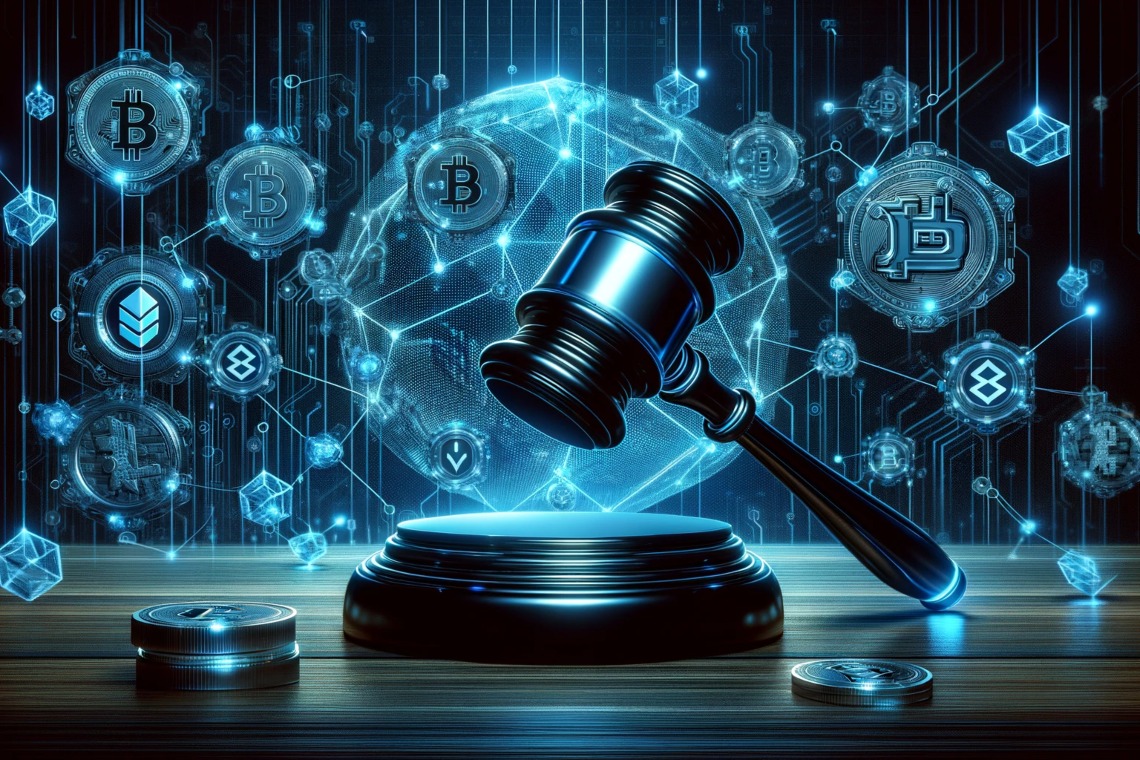A US judge recently ruled in favor of the SEC (Securities and Exchange Commission), stating that specific tokens or cryptocurrencies should be considered securities exchanges even if they occur on the secondary market.
Last year, however, another judge had ruled that XRP exchanges (the cryptocurrency created by Ripple) on the secondary market did not violate federal securities laws.
The Wahi case
The new judgment, issued by Judge Tana Lin of the Western District Court of Washington State, was published a few days ago, and refers to the case of the SEC against Ishan Wahi, a former product manager at Coinbase, and against his brother Nikhil Wahi and their friend Sameer Ramani.
This is a case of insider trading, as Wahi was accused of trading crypto tokens based on privileged information obtained when he was an employee of Coinbase.
Wahi was then fired from the exchange, but the lawsuit continued.
Actually, it was Ramani who exchanged the tokens, following Wahi’s instructions. However, Ramani then fled, so the SEC went after Wahi.
These were tokens that were purchased by Ramani shortly before the listing on Coinbase, when Wahi already knew they would be listed. Therefore, they are not top cryptocurrencies.
Latest crypto news from the SEC: Tokens considered security
The case concerned the alleged crime of insider trading regarding the purchase of Amp, RLY, DDX, XYO, RGT, LCX, POWR, DFX, and KROM.
As former head of the SEC Office of Internet Enforcement, John Reed Stark points out, this could also be a problem for Coinbase, because if those tokens are now considered unregistered securities, then Coinbase allowed their unlawful trading.
Coinbase still has an ongoing lawsuit against the SEC for violating federal securities law.
According to Reed Stark, even the ruling that judged the exchanges on the secondary market of XRP as exchanges that did not violate federal securities laws could be called into question, and in fact has already been called into question by a subsequent ruling on the cryptocurrency Luna of the Terra project.
Judge Lin in the Wahi case is said to have been inspired by this second ruling on Luna, and not the first one on XRP.
Reed Stark is biased, but in fact Judge Lin did in fact rule in favor of the SEC.
The consequences for the crypto market of the SEC’s ruling on security tokens
The consequences of this ruling on the crypto market are likely to be significant, as all tokens that are considered unregistered securities will have to be delisted from all exchanges that provide trading services to US citizens.
They could also be removed in many other parts of the world in the future.
However, we will have to wait for the outcome of the lawsuit against Coinbase to understand if they will actually have to be delisted or not.
What is certain is that Bitcoin is a commodity, and not a security.
There are already doubts on Ethereum, so much so that the SEC could decide to reject the request for the issuance of ETFs on ETH spot in the USA in March. It did the same for BTC, waiting for someone to report it (in that case it was Grayscale) so that a court could pronounce on it.
For Ethereum the process could be the same, although in the case of ETH it is not so certain that the court will declare it as a commodity.
On XRP the sentence is now final, but the SEC’s case against Ripple is still open, accused of selling XRP on the primary market as a security.
As for minor cryptos, in many cases the reasoning of Judge Lin could be applied, and therefore they may have to be delisted from major centralized exchanges. On DEX, however, they will probably remain regardless.
The victory of the SEC
Therefore, although the SEC has lost both against XRP, and especially against Bitcoin spot ETFs, it has won with regards to Amp, RLY, DDX, XYO, RGT, LCX, POWR, DFX, and KROM.
Now we will have to wait to see if it will also win against Coinbase, and if it wins things could already start to change.
If it were to win against Ripple as well, there could be a real upheaval in the crypto markets, with many tokens and cryptocurrencies that may need to be delisted from major exchanges.
Actually, paradoxically this could also be a victory for Bitcoin, because it would free itself from many digital assets competing for incoming capital in the crypto markets. Also because Bitcoin is now so integrated into traditional financial markets that it doesn’t seem possible to make it leave anymore.
After all, there are tens of thousands of cryptocurrencies and tokens that have been put on the market promising profits to those who bought them, while Bitcoin was issued without any promise of profit.
The vast majority of those tens of thousands of cryptos are just pure speculation, if not just projects to raise money from naive bettors.
The situation, however, is still uncertain and complex, so it will take some more time before we actually understand where it will end up.
